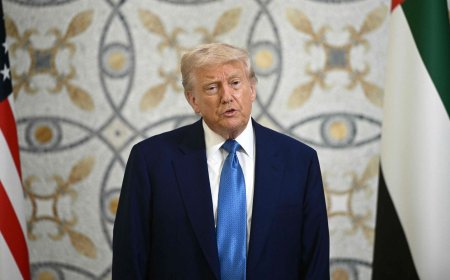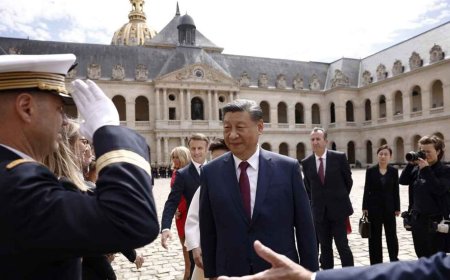Euro Zone Bonds Steady Ahead of ECB Speakers, Markets Unfazed by Trump’s Tariff Threat
Euro zone bond yields hold steady as markets await ECB speeches, brushing off Donald Trump's proposed tariff bill. Traders focus on inflation signals and central bank policy direction.

Euro Zone Bonds Hold Steady Amid Key Central Bank Signals
Euro zone government bond yields remained largely unchanged on Tuesday as investors awaited crucial commentary from European Central Bank (ECB) officials, with markets displaying resilience in the face of renewed tariff threats from former U.S. President Donald Trump. The cautious but stable sentiment underscores the market's current focus on forward guidance from the ECB over external geopolitical developments.
Germany’s 10-year government bond yield, regarded as the euro zone benchmark, was steady at around 2.57%, holding below last week’s highs. Peripheral yields, including those of Italy and Spain, also saw little movement, suggesting that traders are in a holding pattern until further policy cues emerge from ECB policymakers scheduled to speak throughout the week.
Markets Eye ECB Policy Trajectory
Bond traders and institutional investors are closely monitoring speeches from several ECB officials this week, including board members Isabel Schnabel and Fabio Panetta, for insights into the central bank’s inflation outlook and the pace of interest rate normalization.
The ECB cut its key rates by 25 basis points in June, signaling a shift in its ultra-restrictive stance, but policymakers have since expressed caution about the path forward due to lingering inflationary pressures. Markets are now pricing in another rate cut in either September or October, though data dependency remains high.
“Inflation in the euro area has come down considerably, but the ECB is not yet ready to declare victory,” said Luca Paolini, chief strategist at Pictet Asset Management. “Investors are watching for signs of divergence within the governing council — doves want to ease further, but the hawks are hesitant.”
Trump’s Tariff Rhetoric Fails to Rattle Bond Markets
Adding a layer of geopolitical noise to global markets, former President Donald Trump proposed a new bill that would impose sweeping tariffs on foreign imports should he return to the White House in the upcoming U.S. election. The proposed legislation outlines a 10% universal tariff and higher duties on Chinese goods.
However, euro zone bond markets shrugged off the development. Analysts argue that Trump's trade threats, though headline-grabbing, lack immediate policy impact and are unlikely to sway fixed income sentiment in the short term.
“Markets have grown accustomed to Trump's aggressive trade language,” said Carsten Brzeski, global head of macro at ING. “It may impact equities and risk assets more directly, but bonds — especially European ones — remain driven by local economic indicators and ECB policy expectations.”
U.S. Influence Tapers as European Fundamentals Take Center Stage
While U.S. yields slightly rose amid the Trump news and stronger-than-expected domestic economic data, their European counterparts have decoupled somewhat, reflecting differing macro narratives. The U.S. Federal Reserve remains on a more hawkish path than the ECB, with Chair Jerome Powell reiterating the need for sustained evidence of inflation returning to target before any rate cuts are enacted.
“It's a tale of two economies,” noted Andrea Zazzarelli, head of European rates strategy at Nomura. “The U.S. economy is proving surprisingly resilient, whereas Europe is still showing signs of fragility. That means ECB easing is more likely in the near term, while the Fed remains patient.”
Investor Outlook: Calm Before the Policy Storm?
Despite the muted bond market response, investors remain vigilant. Upcoming euro zone inflation data, U.S. non-farm payrolls, and further central bank commentary could stir volatility later in the week. For now, however, bond portfolios are positioned for a cautiously dovish ECB and limited fallout from U.S. political developments.
“The big picture is that European yields are range-bound,” said Anna Stupnytska, global macro economist at Fidelity International. “With the ECB likely to continue on a slow easing path, we expect front-end bonds to perform slightly better, especially in the periphery, where spreads offer carry opportunities.”
Meanwhile, Germany’s inflation figures due later this week, along with euro area CPI data early next week, could significantly shape rate expectations and determine whether the ECB delivers a second consecutive cut in the coming quarter.
In summary, euro zone bond markets have entered a consolidation phase, absorbing global political noise while awaiting stronger signals from domestic monetary authorities. Trump's tariff proposals may stir broader trade anxieties, but they have yet to permeate the fixed-income landscape in Europe.
With inflation softening but not yet fully under control, ECB watchers are parsing every official statement for direction. In the meantime, steady bond yields suggest that investors are adopting a “wait and see” approach, prioritizing monetary clarity over political rhetoric.
What's Your Reaction?
 Like
0
Like
0
 Dislike
0
Dislike
0
 Love
0
Love
0
 Funny
0
Funny
0
 Angry
0
Angry
0
 Sad
0
Sad
0
 Wow
0
Wow
0













































































